Edgar Allan Poe, an eminent figure of American literature, is celebrated worldwide for his eerie tales and haunting poetry. A master of mystery, suspense, and macabre, his words continue to resonate even today. His works not only explore the human psyche’s darker side, but also delve into poignant emotions, encapsulating love, despair, and the relentless passage of time.
Poe’s quotes, like his stories, are intense, thought-provoking, and infinitely captivating. Through this article, we embark on a journey to explore the best quotes of this literary genius, revealing the depth of his thoughts and the subtleties of his craft.
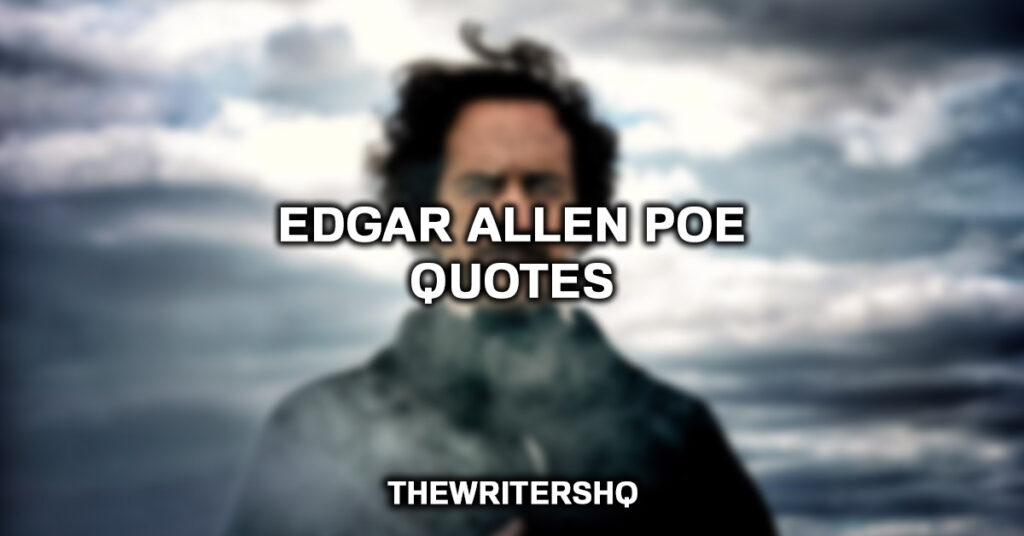
11 Best Edgar Allan Poe Quotes
1. “I became insane, with long intervals of horrible sanity.”
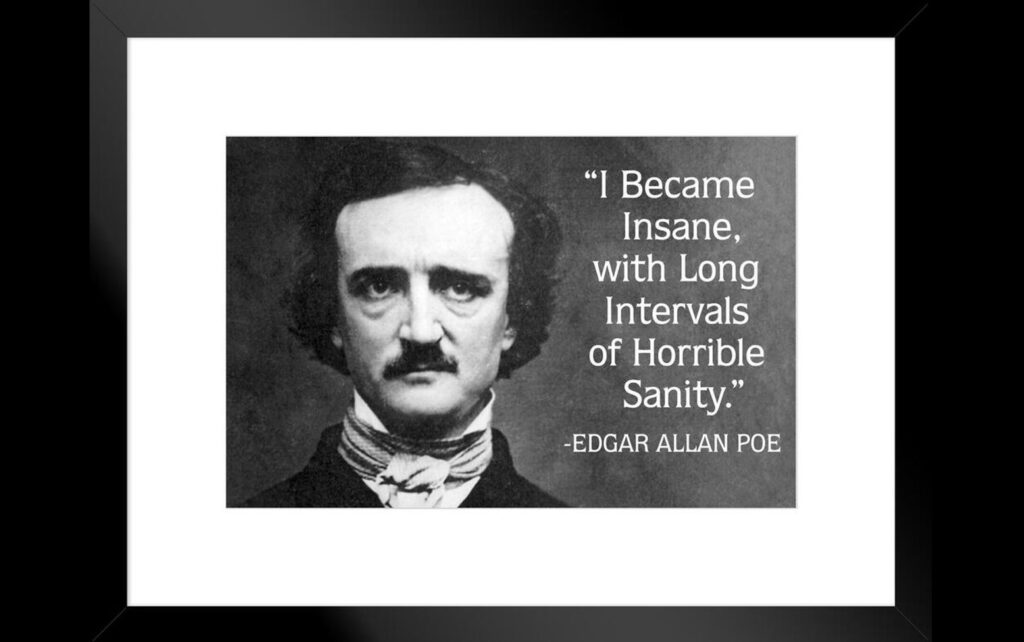
Poe’s candid exploration of mental health and the boundaries of sanity makes this quote both chilling and enlightening.
2. “All that we see or seem is but a dream within a dream.”
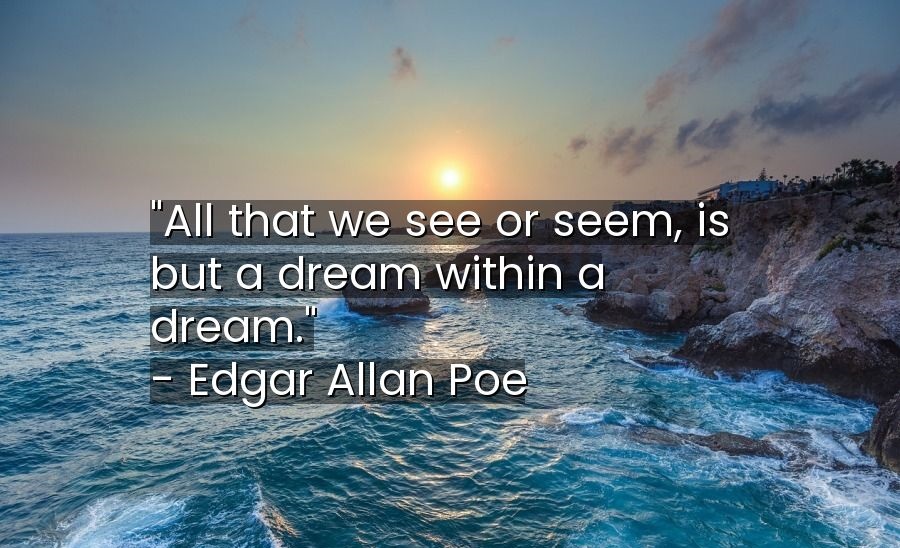
This quote beautifully encapsulates Poe’s musings on reality, perception, and the blurred lines between dreams and existence.
3. “We loved with a love that was more than love.”
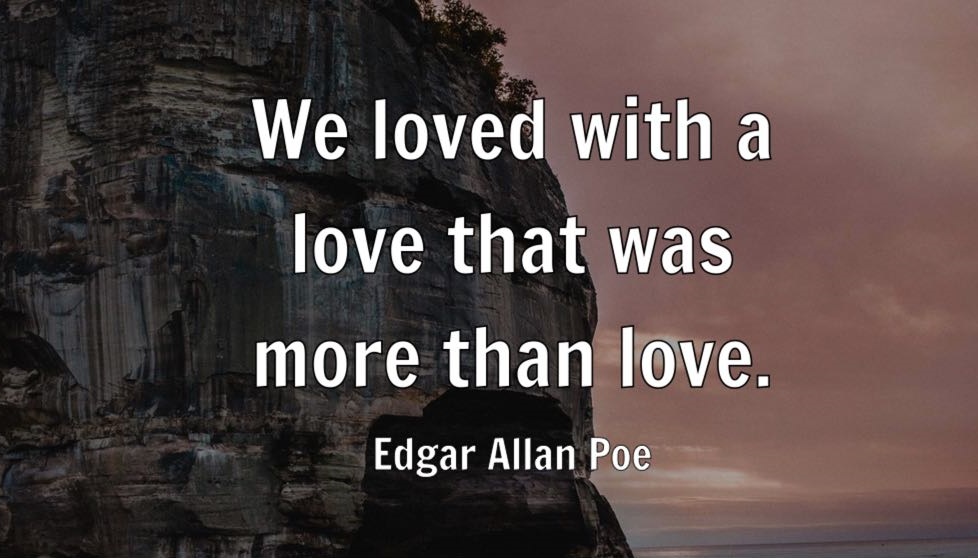
Poe’s eloquence shines through in this passionate declaration of intense and all-consuming love.
4. “Those who dream by day are cognizant of many things which escape those who dream only by night.”
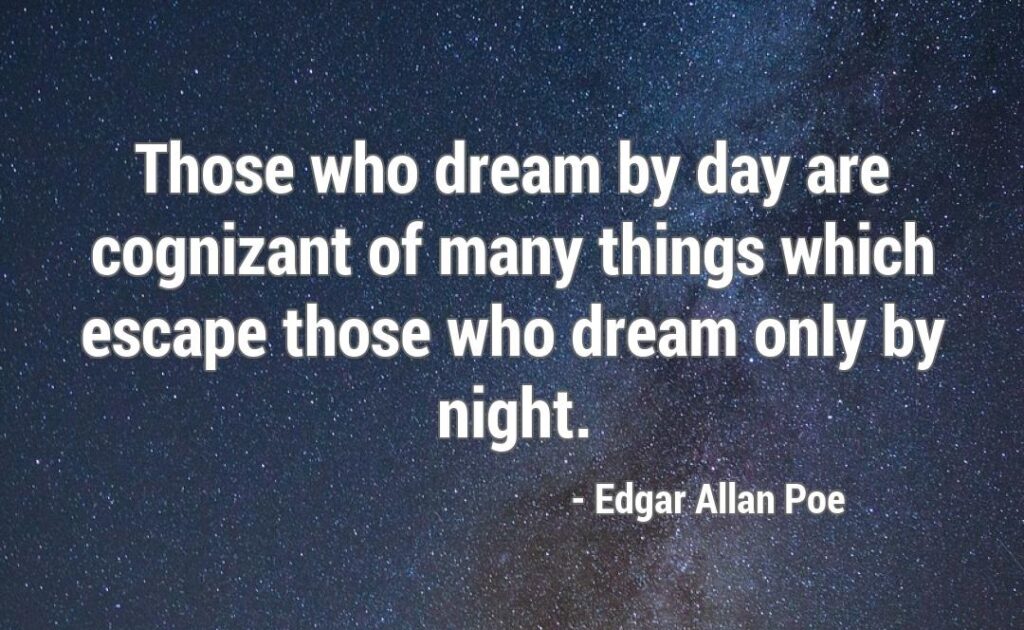
This quote is a testament to the imaginative minds of daydreamers, underscoring Poe’s belief in the power of the subconscious.
5. “I have no faith in human perfectibility. I think that human exertion will have no appreciable effect upon humanity.”
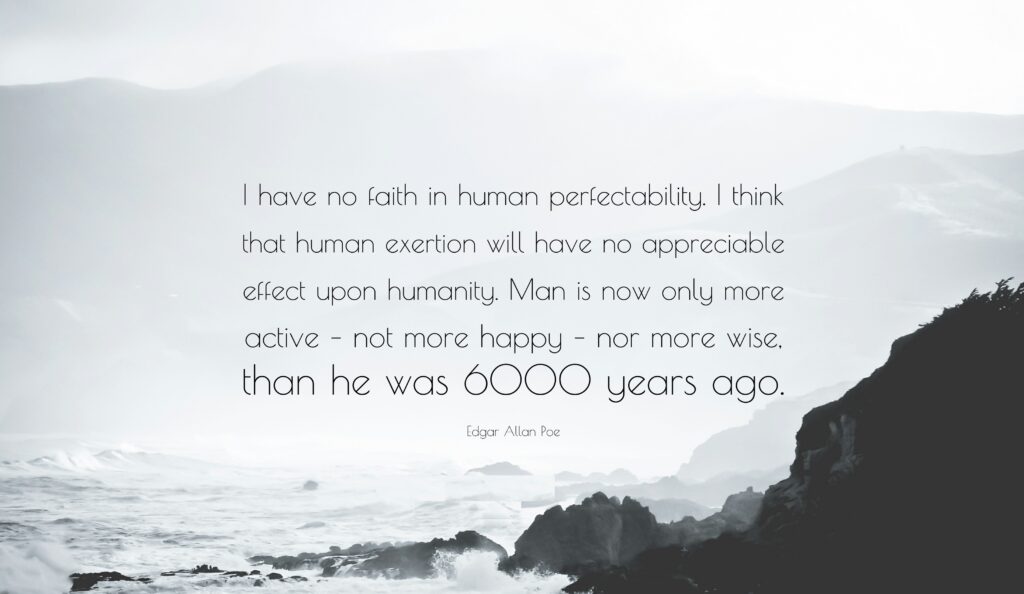
Here, Poe reflects on human nature and the futile pursuit of perfection, showing a somewhat nihilistic view of human progress.
6. “The boundaries which divide Life from Death are at best shadowy and vague. Who shall say where the one ends, and where the other begins?”
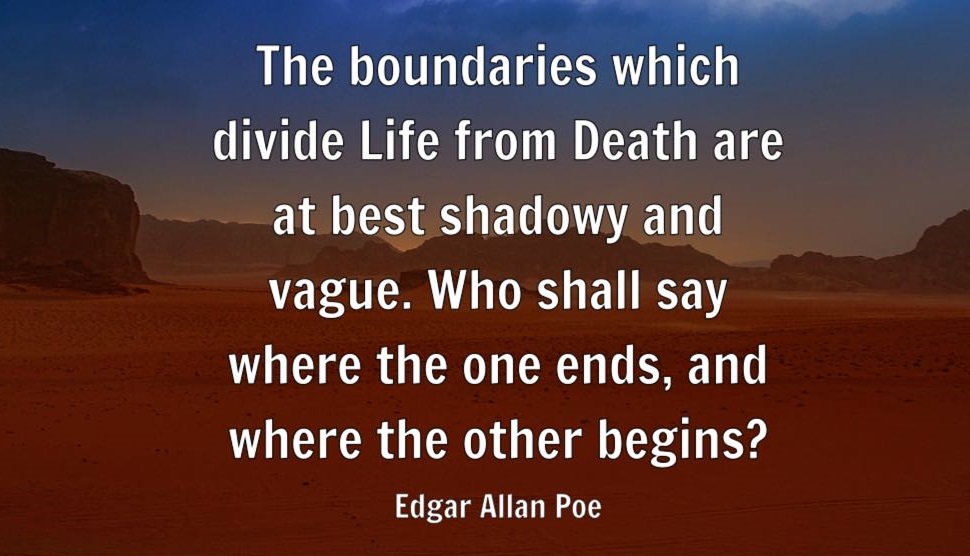
This quote portrays Poe’s fascination with life, death, and the often indistinct line separating the two.
7. “Words have no power to impress the mind without the exquisite horror of their reality.”
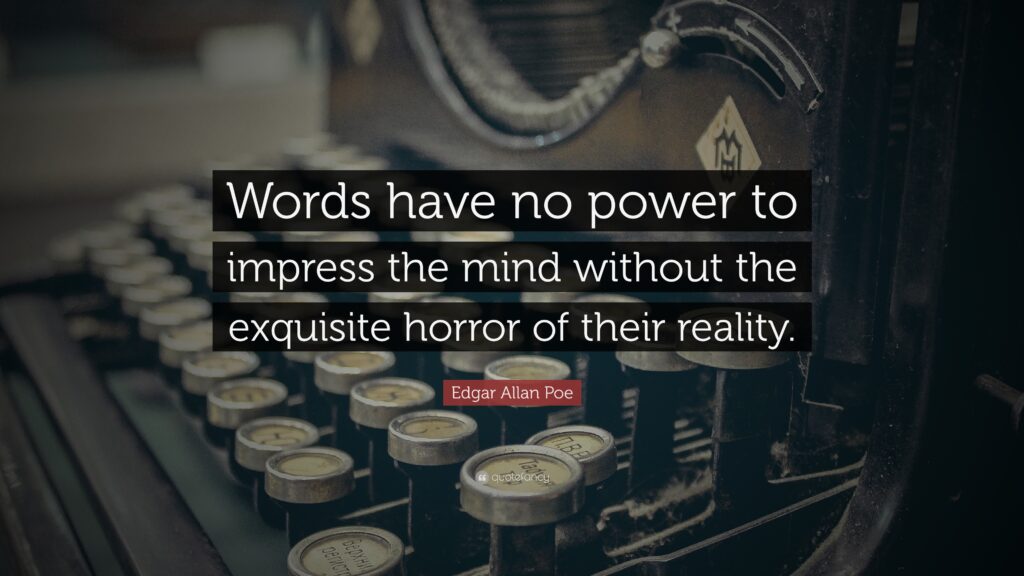
Poe highlights the inherent potency of words, particularly when they resonate with stark truths, be they horrifying or beautiful.
8. “There is no exquisite beauty… without some strangeness in the proportion.”

This quote reveals Poe’s appreciation of the unusual, the unique, and the slightly skewed, giving insight into his aesthetic philosophy.
9. “To elevate the soul, poetry is necessary.”
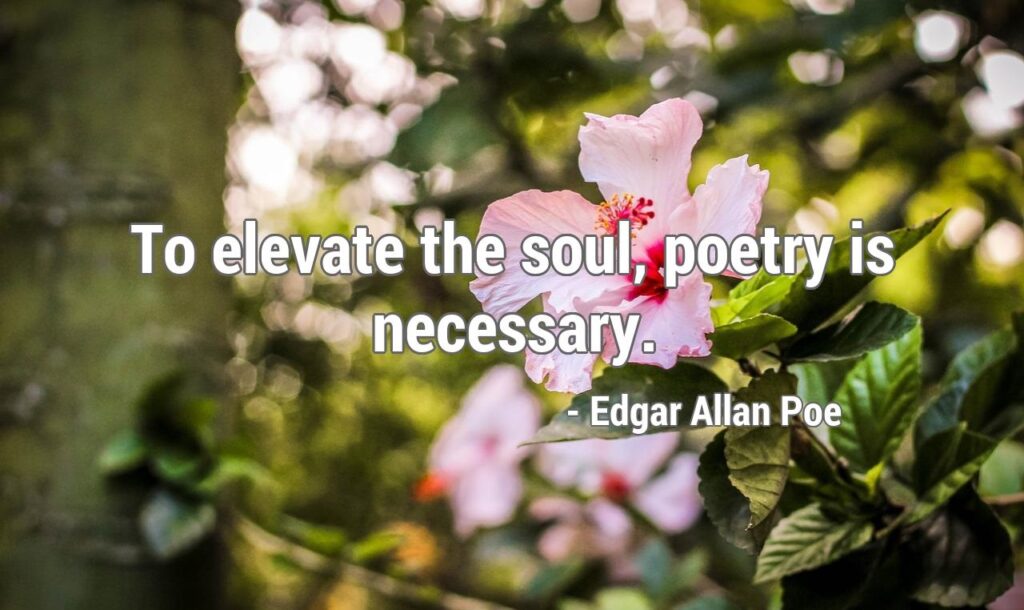
As a poet, Poe deeply understood the transformative power of poetry in elevating the human spirit.
10. “The death of a beautiful woman, is unquestionably the most poetical topic in the world.”
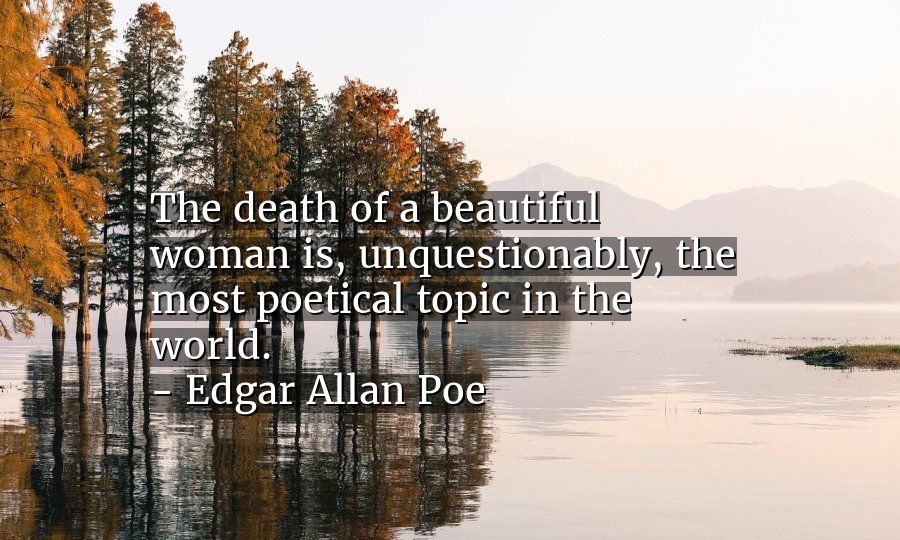
Poe, notorious for featuring the motif of the death of a beautiful woman in his works, reflects on the tragic beauty of such a theme.
11. “Believe nothing you hear and only one half that you see.”
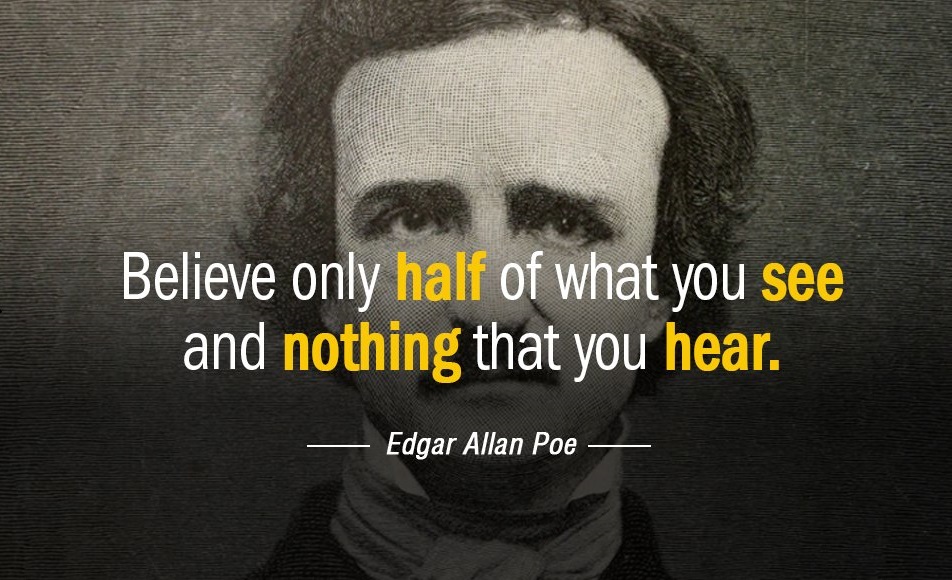
This quote, embodying Poe’s skepticism, urges readers to question everything, underlining the importance of critical thinking.
Each of these quotes encapsulates the essence of Poe’s writing its complexity, depth, and dark allure. These timeless words continue to influence, provoke thought, and resonate with readers across the globe, proving Poe’s indelible mark on literature.
Saddest Edgar Allan Poe Quote
Edgar Allan Poe penned many melancholic and poignant lines, often exploring themes of death, loss, and despair. One of his most mournful quotes comes from “The Raven,” a narrative poem.
“And my soul from out that shadow that lies floating on the floor
Shall be lifted nevermore!”
In this poem, the narrator descends into madness, driven by grief and loss, as a raven continues to ominously repeat the word “nevermore”. The quote captures the despair and hopelessness that the narrator feels, believing that his soul will never rise from the shadow of his sorrow.
It’s important to remember, however, that interpretations of literary works and their emotional content can vary among readers. What one person finds the “saddest” might not resonate the same way with someone else.
Expert Tip: Many of Poe’s works contain deep melancholy, so there are several quotes that could potentially be identified as his “saddest”.
Most Famous Line from “The Raven”
The most renowned line from Edgar Allan Poe’s poem, “The Raven,” is arguably the ominous, haunting refrain of the raven itself: “Quoth the Raven, ‘Nevermore.'” This line is repeated throughout the poem, adding to the narrator’s growing sense of despair and insanity.
It embodies the theme of never-ending grief and mourning and gives the poem its eerie, unforgettable quality.
Edgar Allan Poe’s Last Words
There’s no definitive record of Edgar Allan Poe’s precise last words, but reports from his deathbed claim he repeatedly called out the name “Reynolds” on the night before he died. Who or what “Reynolds” refers to remains a mystery.
Some have speculated it might have been a reference to Jeremiah N. Reynolds, a newspaper editor and explorer of the time, but the connection is unclear.
Another widely quoted supposed last utterance from Poe is, “Lord help my poor soul,” but like the calling out of “Reynolds,” the verification of these being his actual last words is uncertain.
What Was Edgar Allan Poe Poisoned By?
The circumstances surrounding Edgar Allan Poe’s death are still shrouded in mystery. On October 3, 1849, Poe was found delirious on the streets of Baltimore and died four days later in the hospital. The exact cause of his death remains uncertain due to the lack of reliable medical records.
His official cause of death was listed as “congestion of the brain,” a vague term often used for deaths related to alcohol or other causes not entirely understood in the mid-19th century.
There have been numerous speculations regarding Poe’s death, ranging from alcoholism, heart disease, epilepsy, tuberculosis, to even murder. The theory of Poe being poisoned, specifically by heavy metals like mercury or lead, has been suggested. However, tests conducted on Poe’s hair samples in 1999 did show elevated levels of mercury, but not to a fatal extent.
In summary, while poisoning is a theory, it is far from confirmed, and the mystery of Edgar Allan Poe’s death persists more than a century after his demise.
Who was Edgar Allan Poe and what is he known for?
Edgar Allan Poe was a celebrated American author, poet, and literary critic, born on January 19, 1809. He is best known for his short stories and poems that delve into themes of mystery, the macabre, and the psychological. His celebrated works include “The Fall of the House of Usher,” “The Tell-Tale Heart,” “The Raven,” and “Annabel Lee,” among others.
Poe is often considered a pioneer of the detective fiction genre and is also noted for his contributions to the emerging genre of science fiction. His work greatly influenced the symbolist movement in literature, and his haunting, often tragic themes continue to resonate with readers worldwide.
What are some key themes that recur in Edgar Allan Poe’s quotes?
Edgar Allan Poe’s quotes often mirror the themes found in his literary works. These include explorations of love, death, sanity, reality, and the nature of human existence. His words reflect a keen understanding of human psychology, particularly the darker or more melancholic aspects.
The themes of dreams and reality frequently intermingle in his quotes, reflecting the often blurry lines between the two in his stories. The depth and power of words, the beauty in strangeness, and the transformative effect of poetry are other notable themes in his quotes.
What can we learn from Poe’s quote about dreams and reality?
The quote “All that we see or seem is but a dream within a dream” embodies a deep philosophical insight about the nature of reality. Poe suggests that what we perceive as reality could merely be a construct of our minds, like a dream. This line encourages readers to contemplate their perception of reality, questioning the absolute and exploring the subjective.
It reflects Poe’s exploration of complex psychological and metaphysical themes in his work, making readers question their own perceptions of reality.
Why is Poe’s view of human perfectibility considered nihilistic?
The quote “I have no faith in human perfectibility. I think that human exertion will have no appreciable effect upon humanity” reflects a pessimistic or nihilistic view of human progress. Poe suggests that he has no faith in the idea that humans can attain a state of perfection or that their efforts can significantly impact the human condition.
This perspective might be considered nihilistic because it dismisses the notion of inherent value or meaningful progress in human life and endeavors.
How do Edgar Allan Poe’s quotes reflect his aesthetic philosophy?
One of Poe’s quotes, “There is no exquisite beauty… without some strangeness in the proportion,” provides insight into his aesthetic philosophy. He posits that true beauty isn’t found in conventional perfection but rather in the presence of some “strangeness” or unique element.
This approach can be seen in his own works, which often blend the beautiful with the eerie, the sublime with the macabre. The unconventional, the odd, and the strange are thus celebrated as integral aspects of beauty.
What does the quote about the death of a beautiful woman suggest about Poe’s literary themes?
The quote “The death of a beautiful woman, is unquestionably the most poetical topic in the world” indicates a recurring theme in Poe’s writings. The motif of the death of a beautiful woman appears frequently in his works, portrayed as an event of tragic beauty.
This theme resonates deeply with the sense of loss, longing, and profound sorrow often found in his poetry and prose. It might also reflect Poe’s personal life, marked by the tragic deaths of women he loved.
What mystery surrounds the death of Edgar Allan Poe?
The circumstances of Edgar Allan Poe’s death remain a mystery to this day. He was found in a delirious state on the streets of Baltimore in 1849 and passed away four days later. The exact cause of his death was not definitively identified, with the official record ambiguously citing “congestion of the brain.”
Over the years, numerous theories have emerged, including alcoholism, heart disease, and even poisoning. However, without conclusive evidence, the exact cause of Poe’s death remains a subject of speculation and intrigue.
What is the significance of the quote “I became insane, with long intervals of horrible sanity?”
Edgar Allan Poe’s quote “I became insane, with long intervals of horrible sanity” underscores his intimate understanding of the human mind’s darker recesses. He viewed insanity not as a constant state, but as a condition interspersed with periods of what he referred to as “horrible sanity”.
This quote offers a unique perspective on mental health, emphasizing the anguish that can accompany awareness and sanity. It provides a poignant insight into Poe’s own struggles with mental health and personal demons.
How does the quote “All that we see or seem is but a dream within a dream” reflect on the concept of reality?
This quote resonates with a sense of deep philosophical and existential pondering. Poe suggests that what we perceive as reality might not be more than a construct of our minds or a dream within a dream. This blurring of the lines between reality and dreams was a recurrent theme in Poe’s work, hinting at the illusionary and transient nature of life.
How does the quote “Those who dream by day are cognizant of many things which escape those who dream only by night” reflect on imagination and creativity?
This quote pays tribute to the power of daydreaming and the creativity that it can evoke. Daydreamers, according to Poe, are privy to insights and ideas that those who restrict their dreams to the night might miss.
This sentiment reflects Poe’s belief in the importance of imagination in understanding the world around us and emphasizes the transformative power of dreams and creativity.
How does Poe’s quote about human perfectibility reflect his view of human nature?
Poe’s quote “I have no faith in human perfectibility. I think that human exertion will have no appreciable effect upon humanity” reveals his somewhat cynical view of human nature and progress. He suggests that human efforts, no matter how significant, will have little impact on the overall state of humanity.
This reflection illustrates Poe’s skepticism towards the idea of human perfectibility, leaning more towards the understanding that imperfections and flaws are intrinsic parts of human nature.
What does the quote “Words have no power to impress the mind without the exquisite horror of their reality” reveal about Poe’s belief in the power of words?
Poe’s quote “Words have no power to impress the mind without the exquisite horror of their reality” reveals his deep respect for the power of words and their ability to evoke emotional response. He believed that words alone have no impact unless they tap into the raw, often horrifying, reality of human existence.
This perspective aligns with his writing style, which often brought to life the darker aspects of reality through his eloquent and impactful word choice.
How does Poe’s quote “To elevate the soul, poetry is necessary” reflect his love for poetry?
This quote showcases Poe’s belief in the transformative power of poetry. According to him, poetry is a fundamental necessity for spiritual and emotional elevation. This viewpoint underscores the profound respect and passion Poe had for poetry, viewing it not just as a form of art but as a means of soulful expression and elevation.
What does the quote “Believe nothing you hear, and only one half that you see” imply about Poe’s worldview?
“Believe nothing you hear, and only one half that you see” reflects Poe’s skepticism towards accepting information at face value. It implies a cautious approach to the world, emphasizing the importance of critical thinking and personal judgment.
This advice to question everything can also be seen as a metaphor for Poe’s own literary works, which often blur the lines between reality and illusion, urging readers to question and probe deeper.
Conclusion
Exploring the realm of Edgar Allan Poe’s quotes, we delve deep into the mind of a literary genius who mastered the art of suspense, mystery, and macabre. His words, at times unsettling, at times enlightening, offer a window into his perception of reality, love, life, and human nature. Each quote, carrying a fragment of Poe’s soul, resonates with timeless wisdom and an understanding of life’s intricate tapestry.
As we celebrate Poe’s profound literary contributions, we honor the depth and intensity of his thought, beautifully immortalized in his quotes.
